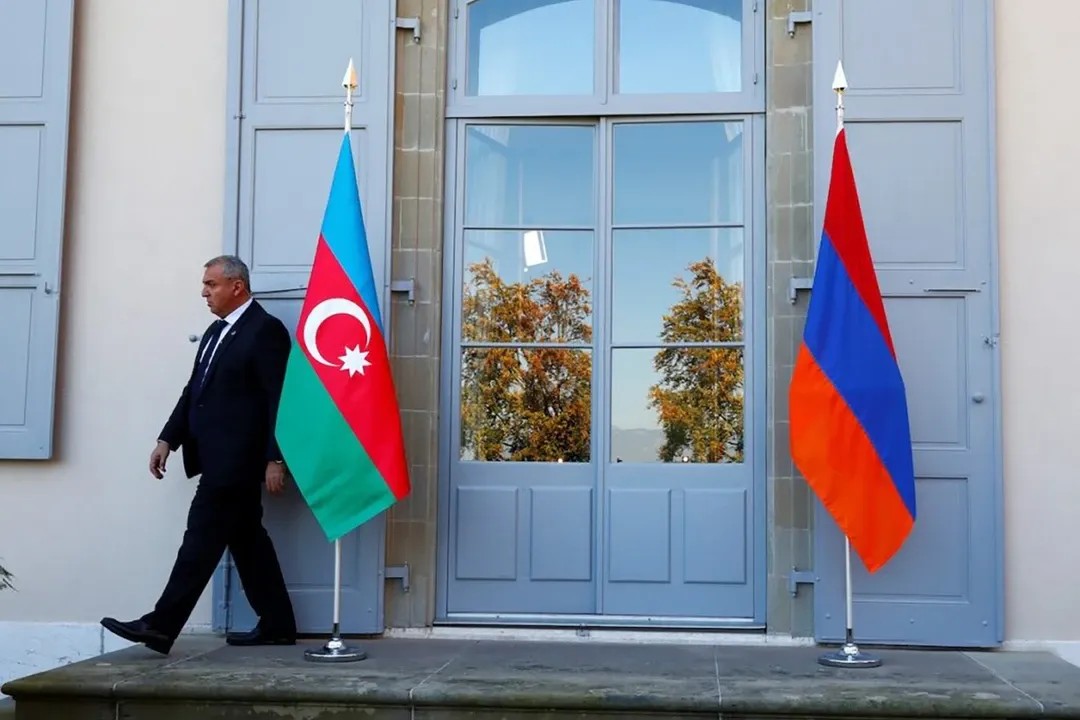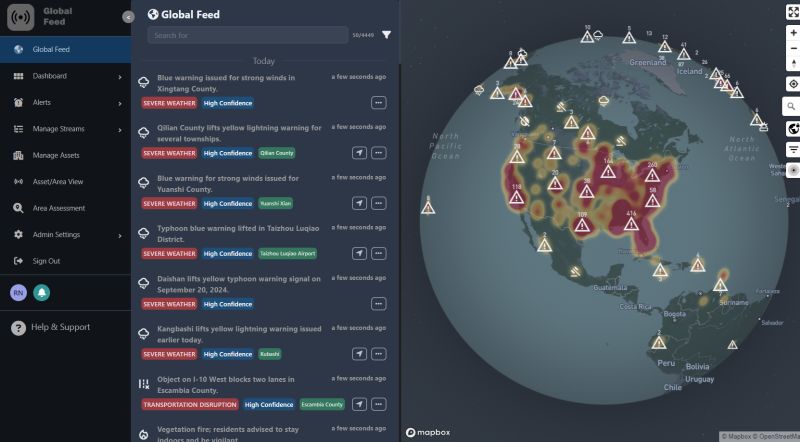Peace Talks and Proxy Wars
Hey team,
Plenty of things to discuss in the headlines this week, but the real events are happening in places most people aren’t looking. Peace talks are moving quietly, cyber hits are landing, and military manoeuvres are setting the pace.
Here’s what matters now and what to watch in the coming days.
BLUF
In this week’s global threat update: Armenia and Azerbaijan edge toward a peace deal after decades of conflict, but Sudan’s war risks splitting the country in two. Hackers and information warriors are on the offensive – from Europe’s takedown of a Russian hacktivist ring to a major cyberattack grounding Russian airliners. On the military front, jihadist insurgents in Africa’s Sahel are expanding their deadly reach, and a surprising U.S. sanctions U-turn in Southeast Asia hints at big-power realignments.

Diplomacy
Caucasus Peace in Sight: Armenia and Azerbaijan inch closer to ending their decades-long conflict, having agreed on a draft peace deal earlier this year. A meeting in Abu Dhabi this month reaffirmed their commitment to negotiate directly and finalize border delimitation, though unresolved issues remain, notably Baku’s demand for a land corridor to its Nakhchivan exclave and changes to Armenia’s constitution to renounce any territorial claims. While no breakthrough was announced, recent months have seen fewer ceasefire violations, and international players (from Turkey to the US) are nudging both sides toward a lasting agreement.
Seven-day outlook: Expect quiet but continued diplomacy. No major summits are scheduled in the coming week, but behind-the-scenes work is likely. Any sudden flare-up along the border could jeopardize the fragile progress – for now, both governments appear motivated to keep talking rather than fighting.

Sudan’s War Splinters Diplomacy: In Sudan’s ongoing civil war, the paramilitary Rapid Support Forces (RSF) and allied rebels unveiled a “transitional” rival government, directly challenging the army’s authority. The RSF’s move comes just as the US, Saudi Arabia, UAE, and Egypt convene new talks (notably without the warring generals present) to seek a ceasefire. Analysts warn the dueling governments could complicate negotiations and even cement a de facto partition of the country. Fighting still rages in Khartoum and other areas; RSF forces, meanwhile, have besieged entire state capitals even while claiming to govern
Seven-day outlook: Heavy combat will likely continue unabated. International mediators may push for at least a humanitarian pause, but with both factions bent on military gains and legitimacy, any breakthrough this week is a long shot. Watch for the outcome (if any) of the new “Sudan Quartet” meetings – a silence afterward could signal another failed effort, whereas any agreed confidence-building steps (like aid corridors) would be a minor win for diplomacy.
Information (Cyber & Influence)
Crackdown on Kremlin’s Hackers: European authorities carried out a global sweep against the pro-Russian hacker collective NoName057(16). Raids across Germany, Spain and beyond targeted the group’s members, with seven arrest warrants issued and 24 properties searched. NoName057(16) had recruited over 4,000 volunteers via Telegram to flood government and infrastructure websites in Europe with DDoS attacks, aiming to cause chaos and sway public opinion in Moscow’s favor. The group – active since the Ukraine war began – allegedly knocked offline sites from ministries to airports in countries supporting Kyiv Officials see the campaign as part of Russia’s “hybrid” warfare toolkit, blending cyber aggression with influence operations.
Seven-day outlook: This takedown could slow the barrage of low-level cyber attacks in Europe, at least temporarily. However, Russia’s online apparatus is hydra-headed. We may see new hacktivist fronts or copycats emerge to replace NoName. Expect Western cybersecurity agencies to stay on high alert, especially with no sign that Moscow is dialing back its digital meddling.

Hackers Hit Back at Moscow: In an unprecedented cyber assault, pro-Ukraine hacktivists effectively grounded parts of Russia’s largest airline. A group calling itself “Silent Crow,” alongside Belarus’s Cyber Partisans, claims it spent a year infiltrating Aeroflot’s network – ultimately crippling 7,000 servers and even breaching executives’ computers. Earlier this week, Aeroflot had to cancel over 50 flights on Monday as its systems went down, snarling travel across the world’s largest country. The hackers taunted the Kremlin with victory slogans (“Glory to Ukraine! Long live Belarus!”) and have threatened to dump data on millions of Aeroflot passengers. Moscow officials called the incident “alarming,” calling it one of the most disruptive cyberattacks Russia has faced, and opened a criminal investigation.
Seven-day outlook: Aeroflot is gradually restoring service, but further fallout is likely as investigators assess the damage. Keep an eye out for any data leaks; if the hackers start publishing stolen customer data or internal emails, it will ramp up pressure on Russian authorities (and embarrass the airline). Also, there’s a risk of retaliation – Moscow may respond with its own cyber operations abroad, so global companies and governments should brace for possible spillover attacks.

Staying ahead of the curve is key to ALCON Intelligence, and it an underlying principle to the insights we bring you. That's why we use Global Feed to keep us out front. Check it out here.
Military
Sahel Crisis Escalates: A fierce jihadist offensive is underway across Mali, Burkina Faso and Niger, largely unnoticed outside the region. Fighters from Jama’at Nusrat al-Islam wal-Muslimin (JNIM), al-Qaeda’s Sahel franchise, have mounted coordinated attacks on military bases and towns, killing over 850 people in May alone. Analysts say JNIM’s strategy has shifted: rather than sporadic guerrilla raids, they are trying to seize territory around urban centers and encircle national capitals, aiming to carve out a quasi-state spanning from Mali’s west through southern Niger into northern Benin. In the past two months, insurgents overran a Malian army base in Boulkessi, claimed to have killed over 400 soldiers across multiple attacks, and even launched simultaneous assaults in several areas.
This surge marks one of the deadliest periods in the Sahel’s recent history, coming at a time when regional governments are estranged from their former Western military allies. The violence is steadily spilling south toward coastal West African states and fueling a wave of refugees heading north toward Europe.

Seven-day outlook: Unfortunately, expect little relief. Regional militaries are stretched thin and focused on regime survival; immediate outside help is scant. In the coming week, more deadly extremist raids are likely, and there’s a growing risk that JNIM or allied groups could strike a high-profile target (like a regional capital or foreign mining site) to capitalize on their momentum. The world may only take greater notice if this instability begins to disrupt international interests – by then, the crisis will be even harder to contain.
Economic
Sanctions: Washington quietly pulled an about-face on some Myanmar sanctions this month – a move that largely flew under the radar. The U.S. Treasury delisted several Myanmar military-linked businessmen and firms previously blacklisted for ties to the 2021 coup.This policy shift came just weeks after junta leader Min Aung Hlaing publicly praised President Trump for reduced tariffs and eased sanctions, and it coincides with Myanmar’s rare earth minerals (strategic in the U.S.-China tech rivalry) becoming a key factor in bilateral talks.
Human rights groups are dismayed, saying this kind of transactional approach rewards a regime accused of atrocities when accountability is still lacking.The White House hasn’t fully explained the decision, sparking speculation that geopolitical calculus – perhaps courting Myanmar away from Beijing’s orbit – is at play.
Seven-day outlook: Watch for any clarification or political backlash in Washington over this reversal. So far it’s been quiet, but Congress could start asking questions. Myanmar’s generals, for their part, haven’t made any notable concessions on the ground (fighting against ethnic rebels continues unabated), so immediate effects will be minimal. However, if China perceives the U.S. encroaching on its influence in Naypyidaw, we might see some diplomatic impacts. Investors in mining and tech will also be watching Myanmar’s next moves closely, as any opening of its rare-earth sector to Western partners would be a significant shift.

If you've read this far - you value intelligence. Why not go a step further and join our internship programme! Head to this link and see if it's the right fit or you.
That’s it for this week’s roundup. The world feels like it’s always moving on multiple fronts - from quiet peace talks to shadow wars online. What story are you watching most closely? Hit comment and let us know!





Responses